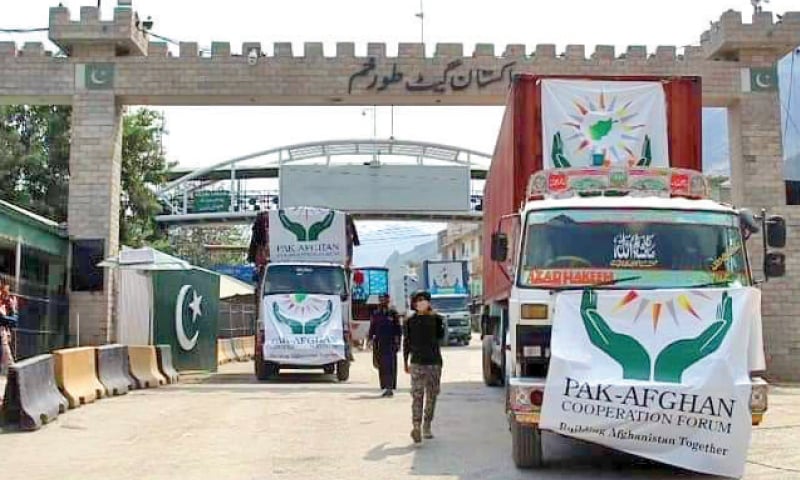Pakistan has long maintained that peace and stability in Afghanistan can only be achieved through dialogue, reconciliation, and peaceful settlement between the warring parties in the conflict. Pakistan’s top leadership has always emphasized the need for an ‘inclusive political solution’ for sustainable peace in the country. From persuading the Taliban leadership to engage on the negotiating table to the constant emphasis on a broad-based political setup in Afghanistan, Islamabad has always used its leverage over key Afghan stakeholders to work for a peaceful end to the conflict. As evident from the statements of the country’s top political and military leadership, a stable, sovereign, and peaceful Afghanistan is one of Pakistan’s top policy priorities. The latest efforts in this regard – facilitating a peaceful settlement to the conflict, working for an inclusive political framework, and providing critical support to evacuation efforts in the post-US/NATO withdrawal scenario – depict Pakistan’s advocacy for a strong, stable, and independent Afghanistan.
To bring political stability and peace in its western neighborhood, the Government of Pakistan made significant efforts to avert a possible civil war: Pakistan brought the Taliban to the negotiating table and stressed the importance of forming an inclusive political dispensation. After he visited the Shanghai Cooperation Organisation (SCO) Summit, Prime Minister Imran Khan iterated that he had ‘initiated a dialogue with the Taliban for an inclusive Afghan government’ to include other ethnicities. Furthermore, Islamabad has stressed the indispensability of averting a humanitarian crisis in war-torn Afghanistan. For this purpose, diplomatic efforts have been focused on persuading the international community to engage with the Taliban; recognize the new Taliban-led government; and provide financial assistance to avert an economic meltdown. The current policy towards Afghanistan is consistent with Pakistan’s persistent efforts over the last couple of decades to foster close economic cooperation with Kabul, further security relationships, and bridge socio-cultural distances.
In an attempt to enhance the bilateral relationship with Kabul, Pakistan has improved economic cooperation manifested in several trade agreements between the two states such as the Afghanistan-Pakistan Transit Trade Agreement (APTTA) to lower tariffs and further economic integration. Pakistan was Afghanistan’s second major trading partner for exports and third major trading partner for imports in 2019– a landlocked country that relies on its eastern neighbor for access to the sea.
Pakistan has also carried out several infrastructure and development projects for reconstruction and rehabilitation efforts in Afghanistan such as the Torkham-Jalalabad road, the Chaman-Kandahar rail link, and the construction of several schools and hospitals.
Cooperation at the intergovernmental level is within the realm of security as well. In 2015, six Afghan Army cadets studied at the Pakistan Military Academy in Abbottabad for 18 months. Intelligence sharing and coordinated intelligence operations across the border increased the level of trust between the two countries in the last decade.
Pakistan has also been host to the largest number of Afghan refugees over the last couple of decades – today, more than 4 million refugees reside in the country. In Islamabad’s view, peace and prosperity in Afghanistan will be the most preferable outcomes of war as Pakistan desires these refugees to return to their homes if stability returns in the war-torn country.
As Afghanistan required human and institutional development assistance, Pakistan also trained hundreds of Afghan officials belonging to different administrative departments. In addition to helping Kabul improve its state institutions, Pakistan provided financial assistance to increase investments and improve commercial links. In the backdrop of Pakistan’s policies to strengthen the Afghan economy while promoting peace and stability, it is not surprising that Islamabad has been pushing the international community to provide financial assistance.
While warning of a huge humanitarian crisis looming over Afghanistan, Pakistan’s premier has urged regional and international powers to ‘strengthen and stabilize the current government, for the sake of the people of Afghanistan.’ In this regard, while stressing the significance of an inclusive government and respect for human rights, Pakistan is advocating resumption of development aid to prevent an economic collapse. Islamabad has stressed that engaging with the new government, unfreezing foreign assets, and resuming financial assistance would ‘incentivize’ the Taliban to form an inclusive political setup and respect human rights and pluralism in Afghan society. Otherwise, ‘a destabilized, chaotic Afghanistan will again become a safe haven for international terrorists, as Prime Minister Imran Khan cautioned the United Nations General Assembly (UNGA) last week. Pakistan has always favored a stable and sovereign Afghanistan and understands that engagement would bring order and stability necessary to lay the foundations of economic prosperity and human development.
Asad Ullah Khan is a senior researcher at Centre for Aerospace & Security Studies (CASS), Islamabad, Pakistan. He can be reached at cass.thinkers@gmail.com
Image Source: Truckloads of food aid sent to Afghanistan (2021, September 20). DAWN. https://www.dawn.com/news/1539170




